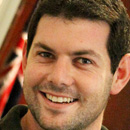Immersion experiences the key to Jewish identity
IMMERSION programs have been generating meaningful Jewish experiences for decades, but in the past 10 years this industry has boomed.
An immersion program is usually a journey, pilgrimage or retreat of longer than 10 days with a clear educational purpose.
Often undertaken in small groups, the participants are taken out of their comfort zones and guided through an intellectually, emotionally and physically challenging adventure.
Immersion programs tend to favour informal and experiential learning, sensory exploration and discovery, and emotional engagement and reflection.
The madrichim (leaders) help to facilitate the experience by ensuring the participants are processing what they are seeing and hearing, and contextualising the information to make it relevant to their own lives. The madrichim also act as role models and mentors, and set the tone of the group culture.
Since 1999, Taglit-Birthright Israel has sent more than 200,000 young Jews from around the world to Israel on a free 10-day immersion program.
Philanthropists, the Israeli government and various Jewish organisations have invested more than $US400 million in this initiative, which has been described as the most revolutionary program in the history of the Jewish world.
Birthright was created in response to fears of heightened assimilation and was premised on the notion that a meaningful encounter with Israel has the potential to spark a positive change in the Jewish identities of young adults.
Extensive research conducted by Brandeis University sociologist Leonard Saxe indicates that the program has been hugely ­successful.
In addition to Birthright, the Australian Jewish community can choose from dozens of other immersion programs to Israel from a myriad of organisations.
But the response to these trips has not been uniformly positive. Critics claim that these programs treat Israel as an ethnic Disneyland and ignore contemporary Israel as a “real” place.
The itinerary for each trip is a carefully planned set of experiences designed to influence participants both intellectually and emotionally.
These trips inevitably become an exhausting emotional roller-coaster. In one day you could watch the sunrise on Masada, cry in the children’s memorial at Yad Vashem, and then dance at a Shabbat service at the Kotel.
Indeed, one of the goals of these trips is to offer a compressed series of unique and intense experiences, which attempt to enact a dramatic personal transformation.
Perhaps part of the criticism is that program providers often focus most of their attention on the actual tour and not enough on the preparation and follow-up.
When follow-up is done effectively, participants get so much more out of the experience. They need guidance and support on how to transmit their new-found passion into their everyday lives.
Regardless of this criticism, the immersion program model is now being replicated all over the globe in a variety of contexts.
Birthright Armenia was launched recently, and there are other ethnic groups, including the Palestinians, who are looking to set up similar programs.
Universities are beginning to offer immersion courses for their students. The Australian Centre for Jewish Civilisation held a two-week trip to Rwanda in July and will next year be sending a class to Poland, and another class to Israel.
Over this coming summer, immersion programs will take on a new frontier. Eleven Jewish Australians will be going to Nepal for a one-month volunteering program, and another 12 Jewish students will be spending two weeks in an indigenous Australian community running school holiday activities on the Derech Eretz program.
These immersion experiences will include Jewish text studies and educational discussions on international development, fair trade, cultural sensitivity, and social justice in the Jewish tradition. The groups will create their own meaningful Shabbat experience together.
These programs build partnerships between communities, excite young Jews about expressing their Jewish values through social action work, inspire the participants to become more active in a cause they are passionate about, and plant a seed for further volunteering in the community.
While there is no magic recipe that will create more responsible and committed Jews, I strongly believe in the transformative nature of immersion programs wherever they take place.
Gary Samowitz is CEO of Jewish Aid Australia and is undertaking a masters thesis on the impact of immersion programs on Jewish identity.


comments